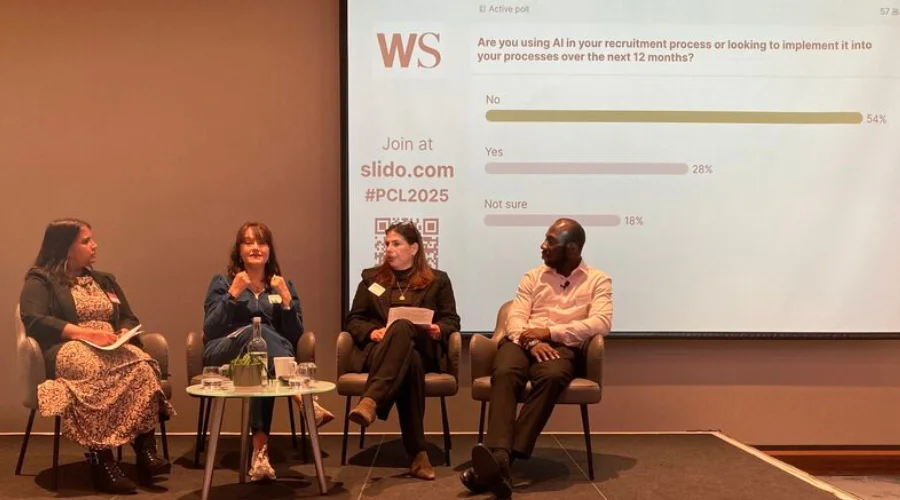
Quick CV Dropoff
Want to hear about the latest non-profit and public sector opportunities as soon as they become available? Upload your CV below and a member of our team will be in touch.

When recruiting for a new employee, it can be tempting for organisations to set a wide salary range to bring in applicants of the right quality but then make an offer to a successful candidate at the lowest level. However, the savings on staffing costs this may make are not usually worthwhile in the long run. In this blog post, TPP examines the reasons why you should offer at the right level and the best ways to establish what that is.
Specifying an extremely low compensation package for a role will obviously limit the quantity and quality of responses, which is why most organisations advertise using a salary range. But there is no point specifying a range if you automatically offer at the lowest level. Remember, if a candidate rejects your offer, it can cost much more to restart the recruitment process than simply upping the salary, particularly when productivity losses are factored in.
The key to offering at the right level is to make sure your salary is competitive. Monitoring job adverts from organisations of a similar type or size can help you to make sure your compensation package is competitive. TPP constantly monitor the recruitment market and can give you help and advice on benchmarking your salaries.
Even if you are re-filling a role following the departure of a member of staff, it is not a simple case of advertising the role at the existing salary. The job description and responsibilities for the replacement may be different, meaning you will have to conduct a review of the salary as well. You also need to review whether a low salary was a contributing factor in the previous incumbent's departure.
Once you establish the industry average for a role, you should set a salary range around that amount. Make sure you have criteria set to decide which qualifications or skills a candidate would need to have to achieve the highest level and which can be sacrificed for a lower salary.
This is particularly important if you are recruiting for more than one position, as differences in salary offers could leave you open to discrimination charges. Make sure you can back up your decisions and be careful not to simply link salary to years of experience. It is always important to take an honest, transparent, inclusive, and ethical stance when offering a salary, which reduces any risk of potential discrimination.
The more senior or specialist the role, the more flexible you will need in terms of salary to make sure you get a candidate with exactly the right skills and experience.
Similarly, if you are only interested in hiring a candidate who is currently working for an organisation that is similar to yours, it can take a higher salary to tempt them away from their current employer than someone who is currently unemployed, particularly in the current economic environment when people are reluctant to take risks by moving roles.
Once you have specified a salary range, make sure you stick to this range when making an offer. Nothing is more likely to make a candidate reject an initial offer without any possibility for negotiation than going back on the advertised salary package, meaning you may have to start your recruitment process again from scratch.
A candidate may reject your initial offer if they feel they deserve a higher salary and could achieve it elsewhere. In this instance, you may wish to stick with your initial offer if you think it is a fair one, or you can reassess based on the value they could potentially add to your organisation.
If salary becomes a real sticking point, you could make a revised offer with an initial salary at the original level but with a clearly-defined path of progression to move the candidate up to a higher level within a specified time frame. This way, the candidate is given an opportunity to prove they are worth the extra, and the organisation can ensure the additional investment will be worthwhile.
Where a monetary increase isn't possible, you should think about what other benefits you can offer. It is important to understand candidate motivations for looking for a new role and offer benefits accordingly. For example, the results of TPP's latest Non-Profit Salary, Rewards & Retention Survey showed the top 3 most valued benefits were pension contributions, flexible working hours, and working from home options. Could benefits like these be included to complement your salary package and appeal to more candidates?
TPP constantly monitors salary packages to establish industry averages for roles of every type and level. We can help ensure your salary is as competitive as possible and give you advice on making the total package attractive to potential new employees.
We handle all potential salary negotiations for roles placed with us and are dedicated to making sure that you get the best possible value for money when recruiting. Using TPP to negotiate makes it easier for both parties as candidates are likely to be more open with their recruiter than their potential new employer.